Search Results
Showing results 1 to 20 of 177
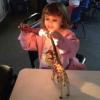
Flashlight Play
Source Institutions
In this activity, young learners will explore light and darkness through flashlight play.
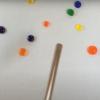
Wiggly Water
Source Institutions
This is a simple and fun activity for learners to explore water and colors.
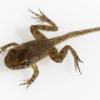
From Polliwog to Frog
Source Institutions
In this activity, learners discover how frogs' bodies change while growing from a tadpole to a frog. Learners create a simple craft that gives a visual display of the metamorphosis process.
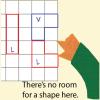
Fill It Up
Source Institutions
Players take turns adding shapes made of three squares to a grid. They try to fit their shapes on the grid in a way that blocks the other player.

From the Internet to Outer Space
Source Institutions
In this activity, learners will use Google Sky to observe features of the night sky and share their observations.

Magnets on the Move
Source Institutions
In this activity, learners investigate the behavior of magnets. Learners create a "wonder wand" with a magnet so they can move a skater around.

Buckets of Popcorn
Source Institutions
In this activity, learners develop an understanding of cylinders and volume as they compare two sizes of popcorn buckets.
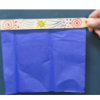
Draft Detectives
Source Institutions
In this two part activity, learners become draft detectives by constructing their own draft catchers to detect drafts around windows or doors.
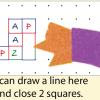
Dots to Squares
Source Institutions
As learners play this strategy game, they develop understanding of squares, area, and perimeter. On each turn, a player draws a line between two dots next to each other on the grid.

Creative Caps
Source Institutions
In this activity, young learners will explore shapes, textures, and geometries using household materials.
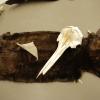
Skin, Scales and Skulls
Source Institutions
In this activity, learners examine body parts (including skin, scales, and skulls) from fish, mammals and reptiles. Questions are provided to help encourage learner investigations.
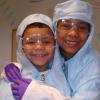
Tiny Particles, Big Trouble!
Source Institutions
In this activity, learners discover why some nanoscale science and technology is done in the controlled environment of a clean room, what clean rooms are like, and how scientists help keep the clean r

Exploring Materials: Liquid Crystals
Source Institutions
In this activity, learners discover that the way a material behaves on the macroscale is affected by its structure on the nanoscale.
Bat Echolocation Experiment
Source Institutions
In this activity, learners discover how bats use echolocation to get information about objects in their environment. During the activity, one learner whispers into a tube.
Measuring Rules
Source Institutions
In this math activity, learners create their own units of measurement by making noodle rulers. Learners practice estimating and measuring objects using the noodle rulers .
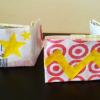
Fused Plastic Wallet
Source Institutions
In this up-cycling activity, learners recycle plastic bags and repurpose them into useful wallets.
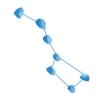
Sidewalk Constellations
Source Institutions
In this activity, learners will go outside and create a constellation.

What Goes Up...
Source Institutions
In this activity about gravity (page eight of the pdf), learners will very simply explore how gravity affects objects using balls and toys.

Gummy Shapes
Source Institutions
In this activity, learners use chemistry to “self-assemble” gummy shapes. Learners discover that self-assembly is a process by which molecules and cells form themselves into functional structures.
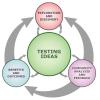
Exploring Liquids
Source Institutions
Young learners investigate and observe the properties of three liquids -- water, vegetable oil, and corn syrup. They use their senses to collect data and ask and answer questions.
